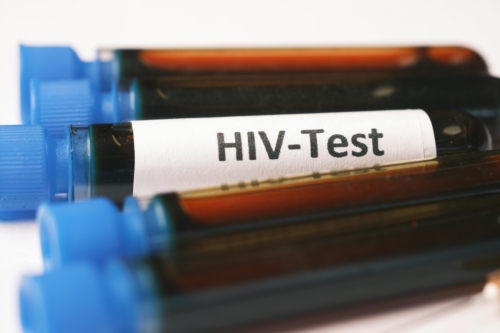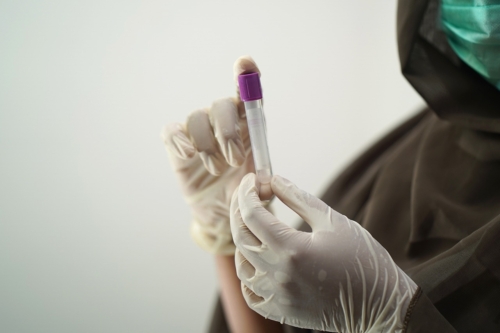
Alabama's prison HIV segregation policy due for justice
This week, a federal court is due to rule on whether or not it’s permissible for the Alabama Department of Corrections (ADOC) to continue its policy of segregating prisoners who are HIV-positive in their very own “separate but equal” facility away from the general population. Alabama is one of only two states left in the union that have held on to the very eighties notion that people with HIV or Aids need to be kept in some form of seclusion. (The other offending state is South Carolina.)
The ACLU lawyers who brought the case against the ADOC are confident that the court will rule in their favor and that the ADOC will have to abandon its system of apartheid. Changing the attitudes that allowed for such a system to come into being in the first place, however, will be a far greater challenge.
The manner in which HIV-positive prisoners in Alabama are treated by ADOC officials suggests that those in charge are either deeply prejudiced towards these prisoners, deeply ignorant of how the HIV virus is spread, or, more likely, both. Every prisoner who enters the Alabama corrections system has to undergo a mandatory HIV test. If the preliminary test comes back positive, the prisoner is then sent to an isolation unit where he remains in solitary confinement for up to a month until a second test is performed. (In the free world, this second test would take all of 24 hours.) If the diagnosis is confirmed, the HIV-positive prisoner is then sent to the “Aids Dorm” or “HIV Dorm” at selected facilities, where they will have no further contact, or at least highly-restricted contact, with the general prison population.
The situation in the women’s prisons is not much better. One prisoner, Dana Harley, who testified as the lead plaintiff at the court hearing painted a shocking picture of life inside the HIV dorm at the Julia Tutwiler facility for women. Dana is serving a 20-year sentence for check forgery. (That’s five years longer than the average sentence handed down for second-degree murder, by the way, but apparently, such disproportionate sentencing is common in Alabama, which has one of the highest incarceration rates in the country.)
Dana knew she was HIV-positive when she began serving her 20-year sentence in 2002, but had to undergo the prison’s mandatory test, regardless, and do her time in isolation before being relegated to the HIV dorm. She has since become an advocate for HIV-infected women in the prison and is sometimes asked to act as an unofficial comforter of other prisoners when they are first diagnosed. In her court testimony, she described how a lot of women “went crazy” when they were placed in solitary confinement immediately after hearing their positive diagnosis:
“[They would be] hysterical, crying, I mean, like they’re going to pass out, thinking they’re going to die. I mean just going absolutely crazy.”
It doesn’t get much better for the women once they get their confirmation and are finally sent to the HIV dorm, where they are confronted with both institutionalized and casual discrimination. During her testimony, Dana described an incident where an officer briefly joined her and some fellow HIV-positive prisoners who were watching TV:
“Officer Renard Taylor stepped in and he was watching the news with us. And then it’s like something just hit him all of a sudden and he just, excuse my language, but he said, ‘let me get out of here. I just realized y’all got that shit.'”
In addition to having to put up with these kinds of remarks, the women are not allowed to eat, have family visits, or attend religious services with the general population. They are also not allowed to participate in most educational programming, in trade programs, in self-help classes or, most egregiously, in work release programs, which are a vital component of any prisoners’ chances of successful rehabilitation upon release.
When Dana brought this discrimination to the attention of Tutwiler’s warden, Frank Albright, he told her, in essence, that if she wanted to “fight for her rights”, she had better lawyer-up. Warden Albright allegedly assured her that, regardless of any legal action:
“Y’all will not walk my halls and spread HIV.”
Dana took his advice, and in January of 2007, she contacted the ACLU, which began preparing a lawsuit. The ADOC has put up a valiant battle since, defending their segregation policies on the basis that “it is a proven system that has effectively prevented the spread of HIV” within the prison. It seems unlikely that any court will share this view and, hopefully soon, they will be forced to abandon their “proven system” of discrimination.
What it will then take to undo the deepseated prejudice towards HIV-positive prisoners, which is evidently not only tolerated, but shared by the senior officials at the ADOC, is anybody’s guess.
Ruling Soon on Isolation of Inmates With H.I.V.
ATLANTA — In his first week in prison in Alabama, Albert Knox, a former pimp convicted of cocaine possession, tested positive for H.I.V.
Afterward, he says, guards called out “dead man walking” as he passed through the halls. He was banned from eating in the cafeteria, working around food or visiting with classmates in his substance-abuse program.
The restrictions were the result of an unusual policy: Alabama and South Carolina are the only states where H.I.V.-positive inmates are isolated from other prisoners. The goal is to stop the spread of the virus, which causes AIDS, and to reduce medical costs. The Alabama Corrections Department’s concern is that H.I.V. will spread through consensual sex, through rape or through blood when inmates give one another tattoos.
But H.I.V.-positive prisoners like Mr. Knox say they are stigmatized by the isolation and are denied equal treatment. In an era when powerful antiretroviral drugs greatly reduce the risks of transmission, they say, Alabama’s system clashes with modern medicine and addresses H.I.V. differently from more rampant viruses like hepatitis B and C. Both forms of hepatitis are more infectious than H.I.V., with hepatitis B being 50 to 100 times more infectious than H.I.V., according to the World Health Organization.
“It felt like we were lepers,” said Mr. Knox, 46, who is living in Indiana on parole. “H.I.V. inmates don’t want anything special. All we want is to be treated like regular inmates.”
Now the policy is under review. A federal judge, Myron H. Thompson of the Middle District of Alabama, plans to rule on its legality before Thanksgiving. He held a trial in September in a class action brought by the American Civil Liberties Union.
The effectiveness of segregating H.I.V.-positive inmates has faced challenges before. In 1995, a federal court upheld Alabama’s policy. The Justice Department notified South Carolina in 2010 that it was investigating and might sue to stop the policy. Most states voluntarily stopped isolating infected inmates years ago.
“We won’t out anyone as having H.I.V.,” said Peter K. Cutler, a spokesman for the New York State Department of Corrections and Community Supervision. “Our system is an ‘opt-in’ system in that inmates are not required to self-identify as being H.I.V. positive when they come into our custody.”
In Alabama, inmates are tested for H.I.V. when they enter prison. About 270 of the state’s 26,400 inmates have tested positive. They are housed in special dormitories at two prisons: one for men and one for women. No inmates have developed AIDS, the state says.
Although these dorms for H.I.V.-positive inmates have certain perks, including air conditioning and private cell, life in them comes with many restrictions. Inmates eat alone, not in the cafeteria. They wear white plastic armbands identifying them as H.I.V. positive. They cannot hold jobs around food, even though fast-food restaurants employ inmates in the general population through work-release programs.
They cannot live in dormitories for elderly or religious inmates or transfer to prisons closer to their families. Until three years ago, they could not attend prisonwide church services.
“Nothing is more important for successful re-entry than to be within visiting distance of your family and to have real work experience,” said Margaret Winter, the associate director of the A.C.L.U.’s National Prison Project. “They are denied that.”




